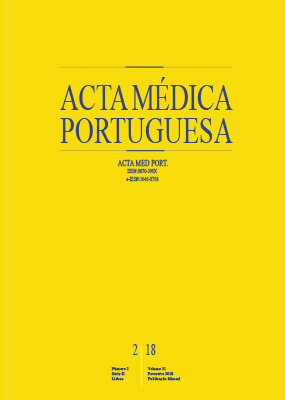Fulminant Emphysematous Pyelonephritis Secondary to Urothelial Neoplasia with Reno-Colic Fistula
DOI:
https://doi.org/10.20344/amp.8869Keywords:
Emphysema, Intestinal Fistula, Kidney Neoplasms, Pyelonephritis, Urinary Bladder Neoplasms, Urinary FistulaAbstract
The emphysematous pyelonephritis is a uncommon and potentially fatal entity. The recognition of this condition enables the early correct management of patients. Diabetes and ureteral obstruction are the main risk factors identified. We present the case of a patient with no relevant risk factors or prior medical history, in which the reason of admission to the emergency department was back pain, eventually evolving into septic shock in the early hours. The imaging tests identified the presence of peri-renal and subcutaneous gas which guided the medical team to the right diagnosis (emphysematous pyelonephritis secondary to fistulized urothelial neoplasia) and the optimal surgical treatment. However, in the post-operative period the patient died, as the clinical condition and laboratory test results performed during the admission were predicting. It should also be mentioned that this same case illustrated a bacteraemia by Sphingomonas Paucimobilis (acquired in the community) with cavitated damage to lungs (probable septic embolism).
Downloads
Downloads
Published
How to Cite
Issue
Section
License
All the articles published in the AMP are open access and comply with the requirements of funding agencies or academic institutions. The AMP is governed by the terms of the Creative Commons ‘Attribution – Non-Commercial Use - (CC-BY-NC)’ license, regarding the use by third parties.
It is the author’s responsibility to obtain approval for the reproduction of figures, tables, etc. from other publications.
Upon acceptance of an article for publication, the authors will be asked to complete the ICMJE “Copyright Liability and Copyright Sharing Statement “(http://www.actamedicaportuguesa.com/info/AMP-NormasPublicacao.pdf) and the “Declaration of Potential Conflicts of Interest” (http:// www.icmje.org/conflicts-of-interest). An e-mail will be sent to the corresponding author to acknowledge receipt of the manuscript.
After publication, the authors are authorised to make their articles available in repositories of their institutions of origin, as long as they always mention where they were published and according to the Creative Commons license.









